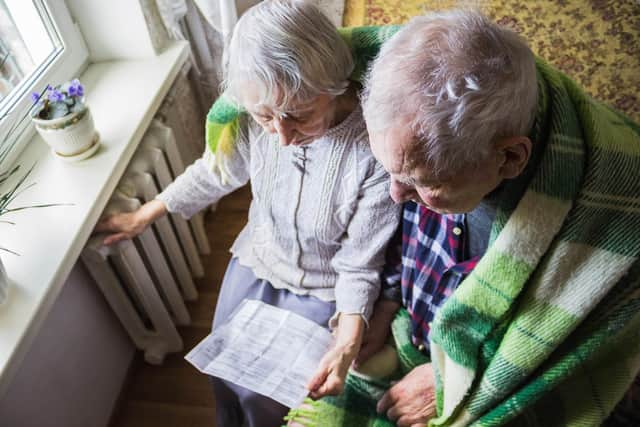Edinburgh council leader pledges to stick to target of ending poverty in city by 2030 despite 'real, real challenge'
and live on Freeview channel 276
Nearly 32,000 struggling families in Edinburgh have been helped to cope with the cost-of-living crisis through direct payments totalling £8 million from the city council. And the council has also assisted people to access more than £20 million in unclaimed benefits during the past year and given support to 240 households to avoid homelessness in 2022.
Council leader Cammy Day said the aim of eradicating poverty in the Capital by 2030 – agreed two years ago after the report of the Edinburgh Poverty Commission – was “a real, real challenge”, especially as energy costs and other prices rise, but he pledged to stick to the target.
Advertisement
Hide AdAdvertisement
Hide AdThe latest update on progress, for the council’s policy and sustainability committee this Thursday (November 17) says: “Latest data shows an estimated 79,000 (15 per cent) people in Edinburgh were living on incomes below the poverty threshold in 2021, including 15,000 (19 per cent) children. Data for 2022 are not yet published. Analysis points towards a likely significant increase in severe poverty and hardship as a result of rising living costs and falling real incomes among poorer families across the UK throughout 2023-24.”


It says while inflation for all households reached 10 per cent, inflation rates as they affect poorer households have been estimated at as high as 15 per cent. “During 2022, rising costs of food and energy have led 73 per cent of low income families in Scotland to go without essentials such as food or heat.”
And it points to Resolution Foundation projections which estimate that average incomes for poorer families are likely to drop by 10 per cent in real terms in the next few years. The update also notes Edinburgh's labour market is very tight, with high employment and low unemployment. But it adds: “Work is not always enough to keep people out of poverty – 13,900 people in Edinburgh are in employment but still reliant on Universal Credit.”
The update continues: “Money and welfare advice services in the city helped Edinburgh citizens access £20.5m in financial gains during the past 12 months. Council led cost of living crisis investments provided for a total of £8m of support for people on low incomes, comprising direct cash payments to 31,900 families, alongside additional resources for crisis grants, energy grants, debt relief, and other support.”
Advertisement
Hide AdAdvertisement
Hide AdCllr Day said the council would do all it could to achieve the target of ending poverty by 2030, but it also needed the UK and Scottish governments to play their part. Millions of pounds were due to people in Edinburgh in unclaimed benefits – £11m of Pension Credits alone may be unclaimed in the city. He said: “We know from the Poverty Commission there was around £80m of unclaimed DWP funds that should be in the pockets of Edinburgh residents and we need to do more to get that money out of the government and into people's pockets.
“We’ve done a huge amount to support people during the cost of living crisis, including helping families to gain £20m in unclaimed benefits and reduced debt, and putting an extra £8m of council funds directly into the pockets of those most in need of help. We’ve also been improving access to fair work, preventing homelessness and delivering housing improvements.
“At the same time, we know that hitting our targets will get more and more challenging every year, particularly in the current economic context, and we’ll need UK and Scottish governments in particular to step up and continue to support us.”
He said unless Chancellor Jeremy Hunt increased benefits in line with inflation some of the poorest families in the city could see themselves £1,000 worse off. And he warned Edinburgh’s scope for action was limited because it was the lowest-funded council in Scotland. "The UK and Scottish governments need to get round that reality table of what's happening and at the very least uprate benefits in line with inflation and work with local government to deliver more to people who are absolutely struggling.”